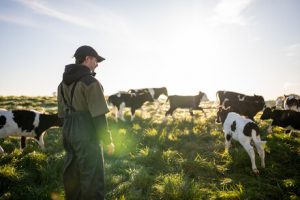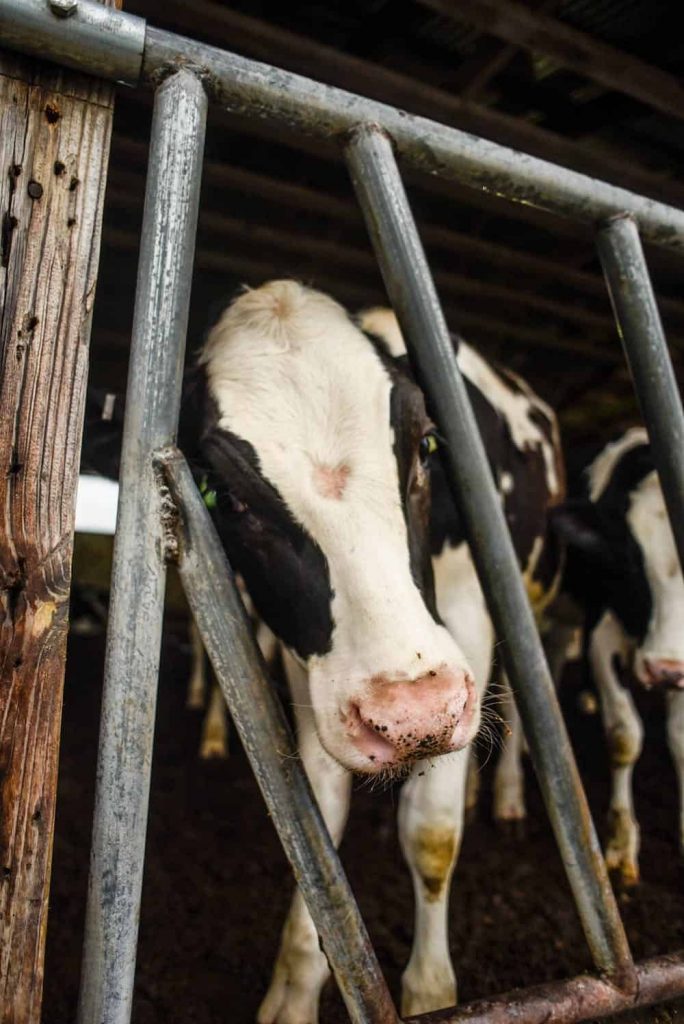Michigan State University’s Dairy Cattle Teaching and Research Center has a new machine for its cows that could help farmers fight climate change worldwide.


Michigan State University’s Dairy Cattle Teaching and Research Center has a new machine for its cows that could help farmers fight climate change worldwide.
The machine, which dispenses treats for cows and analyzes their output, is part of an ongoing climate change project led by MSU animal science professor Dr. Mike Vandehaar.
Methane acts as a greenhouse gas when released into the atmosphere, contributing to the planet’s rising temperatures. As a greenhouse gas, methane is 25 times more potent than carbon dioxide, according to the Environmental Protection Agency.
Vandehaar’s project is a step toward reducing the environmental footprint of dairy cows.
“People don’t eat dairy because they believe it’s bad for the environment,” Vandehaar said, “But most people do like ice cream. I don’t want you to feel … guilty when (you) eat it.”
The machine enabling Vandehaar’s research is about the size of a large wardrobe and has an opening for cows to place their heads. Once their heads are in, the machine dispenses molasses pellets — treats for the cows. As the cows eat, the machine analyzes the amount of methane they burp out.
In Vandehaar’s upcoming study, cows will be fed supplements containing fatty acids. Preliminary research shows these supplements could reduce cow methane emissions by about 20 percent, he said.
“We want to know if some fatty acids are more effective than others,” Vandehaar said.
Vanderhaar said methane from other parts of a dairy farm operation can be turned into a fuel source. The center has another machine, called a digester, that captures methane emitted from fermenting manure and other organic waste.
Solving these environmental problems is a small but important step for climate action, he said.
Cows account for about 11% of greenhouse gas emissions, and only 20% of those cows are used on dairy farms, according to the Food and Agriculture Organization of the United Nations.
Vandehaar’s other projects have aimed to reduce food waste with “leftover feed,” or cattle feed made from the leftovers of plant harvests.
Leftover feed is made from high-fiber parts of plants that would otherwise go to waste–such as unused cotton seeds–Vandehaar said, which cows can eat.
Legal notice about Intellectual Property in digital contents. All information contained in these pages that is NOT owned by eDairy News and is NOT considered “public domain” by legal regulations, are registered trademarks of their respective owners and recognized by our company as such. The publication on the eDairy News website is made for the purpose of gathering information, respecting the rules contained in the Berne Convention for the Protection of Literary and Artistic Works; in Law 11.723 and other applicable rules. Any claim arising from the information contained in the eDairy News website shall be subject to the jurisdiction of the Ordinary Courts of the First Judicial District of the Province of Córdoba, Argentina, with seat in the City of Córdoba, excluding any other jurisdiction, including the Federal.
1.
2.
3.
4.
5.
eDairy News Spanish
eDairy News PORTUGUESE
